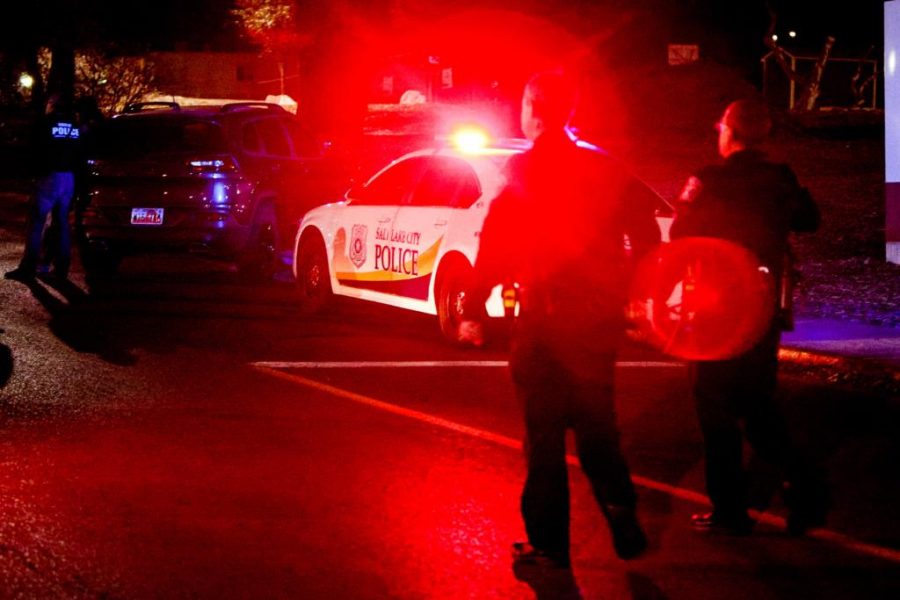On Oct. 30, University of Utah student ChenWei Guo was killed in what police describe as a random act of violence.
Around 8:30 p.m., university police received a domestic violence call from a woman who said she had been assaulted by her husband in Red Butte Canyon, where the couple was camping.
Police soon learned that the suspect, Austin Boutain, was armed and wanted for involvement in a Colorado homicide investigation.
According to police, Boutain shot Guo, who was parked in his car near the bottom of of the canyon, in an attempted carjacking. Guo was with a woman, also a U student, who managed to dodge gunfire and escaped without injury.
Boutain fled the area and wasn’t captured until the next morning, resulting in an 14-hour manhunt in the university foothills.
Around 200 police officers from various agencies in Utah, as well as the Federal Bureau of Investigation, searched the Red Butte Canyon and Garden — equipped with military-grade equipment, including assault rifles, sniper rifles, a BearCat armored truck, a helicopter and thermal-sensitive technology.
Students in on-campus housing and at the Medical Center were placed on lockdown; a mass text was sent to students advising them to “shelter in place.”
Out of respect for Guo, U President David W. Pershing cancelled classes the following day.
“It is with great sadness that I must tell you that on Monday evening, ChenWei Guo, one of our international students, was killed in a senseless, random act of violence,” Pershing said in a statement. “We have cancelled classes today in respect of ChenWei and the impact this violent event has had on our campus community.”
To honor the slain student, the Asian American Student Association held a vigil on the steps of the John R. Park Building, where students paid their respect with candles and flower bouquets.
The killing was reported on by national media outlets, including The Washington Post and New York Daily News.
The “Chenwei Guo Family Fund,” a GoFundMe campaign established after Guo’s death, raised $31,654 in just three days.
Guo’s death is unique not for its randomness or tragedy (although it is both these things), but for the degree of community, police and media response it prompted.
On Nov. 2, two days after Guo was killed, a 16-year-old boy was taken to the hospital after being shot while walking on a sidewalk in West Valley City during a drive-by shooting.
A month and a half earlier, on Sept. 16, a 14-year-old boy was shot three or four times after a car pulled up while he was playing basketball at a park in West Valley.
In Kearns, a 9-year-old boy was hospitalized in critical condition after being shot in the head in December 2016, when bullets fired from a black BMW penetrated the SUV he was riding in.
None of these incidents received national media coverage.
Although all three of these victim’s survived, the circumstances surrounding their shootings were no less tragic or random than the circumstances of Guo’s death.
As we grieve, honor and remember ChenWei Guo — an innocent student killed in a senseless, disturbing act of violence — we should do so while keeping other victims of random violence in mind.


